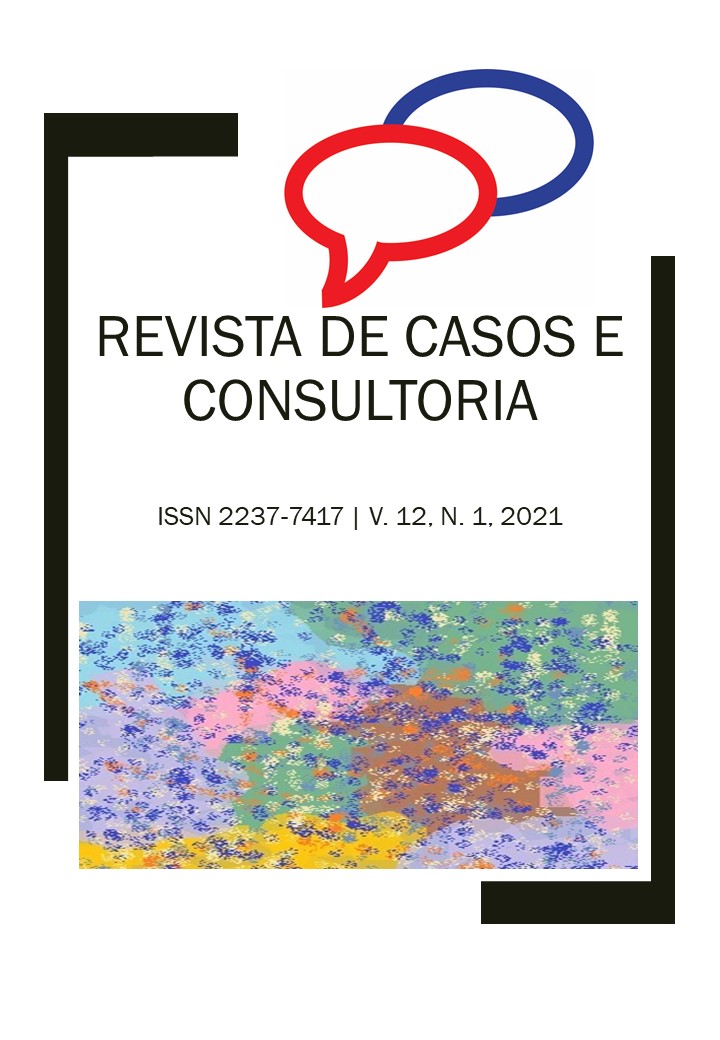Paradigms course, new technologies and engineering
Keywords:
Grade curriculum; Tech; engineering.Abstract
This work is the result of studies conducted by the researcher about the updates of the curriculum in engineering courses, since, as the teacher of the area, realized long ago how to work curricula remains unchanged despite technological advances, cultural and scientific. Therefore, we prepared a detailed study of all the relevant curriculum cornfields, step by step. But before we prepared a field survey to get a better organization and truthfulness of academic reality. From this initiative, the study was taking shape and elaborate issues formed the theoretical foundation. At first, it argued coordinators / teachers of course, compiled the data and realized the need to invoke the students too, which contributed heavily to exchange information with the bibliographic foundation and completion. What once pervaded the imagination of the researcher came to factual reality. In conclusion, it was proved that the teaching-learning process will never be finished, it will always be in the update process. Therefore, it is considered that the question pertains not to the university to update the latest generation equipment in their laboratories, and neither the traditional curriculum while its horizontal and vertical organization, making it impossible to interdisciplinarity. What tends to make a difference is how this curriculum is administered by the teacher. The teacher should administer the new technologies in relation to the inherent professional training contents which nurture the application of theoretical knowledge of undergraduate engineering student in practice that effectively develop necessary skills for their training.
Downloads
References
BRASIL. Lei n. 9.394/96 de 20 de dezembro de 1996. Lei de Diretrizes e Bases da Educação Nacional. Diário Oficial da República Federativa do Brasil, Brasília, DF, no. 248, dez. 1996, p. 27.833-27.841. Disponível em: < http://portal.mec.gov.br/setec/arquivos/pdf/LF9394_96.pdf >. Acesso em: 14 fev. 2021.
CNE. Ministério da Educação. Resolução CNE/ CES 11/2002. Diretrizes curriculares Nacionais do Curso de Graduação em Engenharia. 2002. Disponível em: <http://portal.mec.gov.br/cne/arquivos/pdf/CES112002.pdf>. Acesso em:14 fev.
DA FONSECA, João José Saraiva. Apostila de metodologia da pesquisa científica. João José Saraiva da Fonseca, 2002. Disponível em: <http://www.ia.ufrrj.br/ppgea/conteudo/conteudo-2012-1/1SF/Sandra/apostilaMetodologia.pdf>. Acesso em: 14 fev. 2021.
DCN. Resolução 11 do Conselho Nacional de Educação, Câmara de Educação Superior, de 11 de março de 2002: Diretrizes Curriculares Nacionais do Curso de Graduação em Engenharia. Diário Oficial da União, Brasília, 9 de abril de 2002. Seção 1, p. 32. Disponível em: < http://portal.mec.gov.br/setec/arquivos/pdf/LF9394_96.pdf >. Acesso em: 14 fev. 2021.
KRAMER, Sonia. Propostas pedagógicas ou curriculares: subsídios para uma leitura crítica. Educação & Sociedade, v. 18, n. 60, p. 15-35, 1997.
KUEHN, A.; BAZZO, W. A. O que Faremos da Educação Tecnológica. Revista de Ensino de Engenharia. Brasília, 2004. v. 23, n. 2, p. 9-17.
MASETTO, Marcos T. (org.). Competência pedagógica do professor universitário. Editorial Sumus, SP: 2012. 11p, il.
PERRENOUD, Philippe. Construir competências desde a escola. Editora Alegre, Porto Alegre: 1999. 54 e 58p, il.
SIMÕES, Anna Carolina; HESPANHOL, Aurélia de Cássia Ferreira; ESTRELA, José Mário da Silveira. PARADIGMAS CURRICULARES, NOVAS TECNOLOGIAS E A ENGENHARIA: a importância do currículo oculto. In: Anais do XLII Congresso Brasileiro de Educação em Engenharia (COBENGE 2016). Brasília: ABENGE. 2014. p. 1-12. Disponível em: < http://www.abenge.org.br/cobenge/arquivos/5/Artigos/129163.pdf >. Acesso em: 14 fev. 2021.
TEIXEIRA, Ricardo Luiz Perez et al. METODOLOGIA ATIVA: UM ESTUDO DE CASO ENSINO NA DISCIPLINA DE DESENHO EM ESTUDANTES DE ENGENHARIA DA GERAÇÃO Z. Humanidades & Inovação, v. 6, n. 12, p. 309-321, 2019. Disponível em: < https://revista.unitins.br/index.php/humanidadeseinovacao/article/view/1296>. Acesso em: 14 fev. 2021.

 Português (Brasil)
Português (Brasil) English
English Español (España)
Español (España)